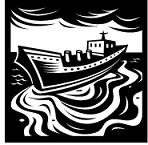Bill
Calls to update maritime laws
 Lawmakers in Washington are fixed on the legal and financial fallout of the oil spill in the Gulf of Mexico on BP and firms like Transocean, the operator of the Deepwater Horizon rig that sank in April.
Lawmakers in Washington are fixed on the legal and financial fallout of the oil spill in the Gulf of Mexico on BP and firms like Transocean, the operator of the Deepwater Horizon rig that sank in April.
But a flurry of legislation in Congress could also have sweeping consequences, both intended and unintended, for other industries that work at sea.
One bill in the Senate would put cruise operators in its cross hairs by making it easier for damages to be awarded under the Death on the High Seas Act, which the cruise industry has lobbied hard in the past to keep unchanged.
There are bills in both the Senate and the House that would repeal a law Transocean has cited to cap some of its liabilities — the Limitation of Liability Act. Scrapping that law would also undo protection for companies that operate giant container ships, inland barges, tugs and fishing boats.
Other legislative proposals seek to amend the Jones Act, which governs death and injury claims by seamen, and to nullify the United States Supreme Court's decision in the Exxon Valdez case to allow jurors to mete out large punitive damages against any company involved in a maritime disaster.
Lynda D. Sanford made a trip recently to Washington to support the Senate bill on the Death on the High Seas Act. The proposed changes could make it easier for families of the workers killed on the Deepwater Horizon in April to sue for damages. But Ms. Sanford, an auditor from Atlanta, has no connection to the rig. Instead, she wants the bill extended to relatives of people who die while on cruises, as her mother did in 2001.
Under current law, recoveries for those who die at sea — be it on a rig or a cruise ship — can be limited to funeral expenses. "I have been doing this for nine years and I needed to tell them that victims like my mother had to be included in any bill," Ms. Sanford said.
Some legal experts said the BP debacle had created an opening to modernize the country's maritime laws, which often do not make legal or common sense because they have evolved by being amended in a piecemeal fashion over decades or centuries.
A decade ago, for instance, Congress narrowly amended the Death on the High Seas Act, which was enacted in 1920, to allow survivors of those killed in airline crashes over water to recover more damages. That move followed lobbying of lawmakers by the parents of high school students from Montoursville, Pa., who were killed in 1996 in the crash of TWA Flight 800 in the Atlantic Ocean. Yet the law still sidesteps the issue of deaths on cruise ships.
"You get traction in these things when there is a compelling tragedy," said Robert Force, a professor of maritime law at Tulane University.
For now, most big companies with a stake in the proposed changes see little to gain in being linked to BP's problems and are keeping a watchful eye on Washington while maintaining a low profile. And while several BP-related bills are moving through Congress quickly, it is impossible to say which, if any, will pass or the final shape they may take.
"Things are very fluid as members of Congress are considering a number of options to ensure families of the oil rig victims are taken care of," the Cruise Line Industry Association, a trade group, said in a statement.
Most of the proposed laws are a direct response to the actions of companies involved in the oil spill. For example, a Senate committee voted last Wednesday to end the current $75 million cap for oil spill-related environmental damage under a statute known as the Oil Pollution Act.
Transocean touched off a furor when it invoked another law, the Limitation of Liability Act, to try to limit claims against it arising out of the Deepwater Horizon incident to $26.7 million.
That law limits the total liability of a vessel's owner, apart from pollution-related claims, to the vessel's value, including any money owed to its owner, after an accident like a sinking.
The $26.7 million figure cited by Transocean was based on the money BP owed to it for the rig's services.
The company's filing drew the attention of lawmakers to the Limitation of Liability Act, and soon the Senate and House bills were introduced to repeal it.
Vincent J. Foley, a lawyer in New York who defends shipping companies involved in maritime accidents, said that repealing the law would have consequences far beyond Transocean because the statute was routinely used by operators of vessels like cargo ships, freighters, barges and tug boats. Along with limiting a company's liabilities, it also sets up a process to streamline claims against a vessel owner.
(Published by The New York Times July 5, 2010)